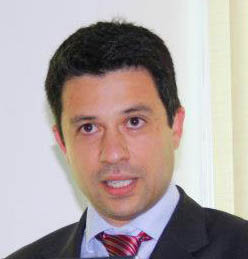 The crisis at BES was made public about three months ago and the team led by economist Vítor Bento spent about two months at Novo Banco. BES became a highly toxic bank and Novo Banco breathed health and vitality.
The crisis at BES was made public about three months ago and the team led by economist Vítor Bento spent about two months at Novo Banco. BES became a highly toxic bank and Novo Banco breathed health and vitality.
But let's go back a little bit.
About four months ago, Banco de Portugal, acting as regulator of the financial system, took the reins of total control, assuming and guaranteeing coverage of all deposits in order to maximize BES' market value. Did it work? Not!
Based on this assumption and without specifically knowing the state of health of BES, on 3 August, Banco de Portugal decided, together with the European Investment Bank and the new team led by Vítor Bento, to create the Novo Banco, integrating the deposits and assets.
It decided, like all new companies that are born, to create a new brand, a new discourse and a new confidence. Did it work? No. And did you know about this possibility? Yes.
About two months ago, Professor Miguel Rocha de Sousa (University of Évora, Department of Economics) began working on this topic, through an academic article. One of the main conclusions was that Novo Banco could only be efficient and effective in its creation and development if it managed to get the market to “detach” it from the Old Bank (BES). If the correlation of assets and deposits is “disconnected” from BES, then the Bank is successful.
What if I can't? You have to sell the bank. It's because? Because, despite having separated the deposits, they were not able to separate the old toxic assets of BES and, thus, we are witnessing a new brand of failed success. Incompetence? Yes.
What was pointed out at first as a success story by the prime minister, next door, in Pontal, may now turn against him. As Professor Marcelo Rebelo de Sousa said, “now the Government is starting to move away from the BES case, leaving Banco de Portugal all the responsibility… if it goes wrong it was the regulator's, if it goes well it was because we all intervened in the beginning”.
Now with a new team in place at Novo Banco, my question is: How much will the BES case cost each taxpayer? This is because it is not just the Bank's financial hole. These are all the procedures and campaigns to create a new Bank…
All studies must be done for better decision making. Even more so when it involves huge amounts of public money.
I know that it's easier to talk later than to act before, but it must be done with common sense, responsibility and with a certain level of rigor. As with large public works, large public contracts (such as road and health PPPs, for example), but also large public interventions (such as in banking, for example) must be preceded by technical studies and impartial analyzes (of Universities , for example), in partnership with the regulators of the intervened sectors.
Author Pedro Pimpão
Doctoral Student in Management at ISEG – University of Lisbon
Postgraduate in Business Management
Degree in Economics
Coordinator of the Installation Committee of the Portuguese Economists Association
[email protected]
NOTE: Article published under the established protocol between the Sul Informação and the Algarve Regional Delegation of Order of Economists.


















Comments